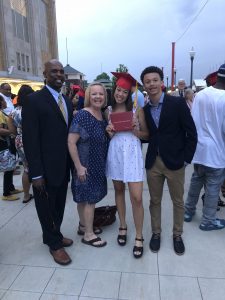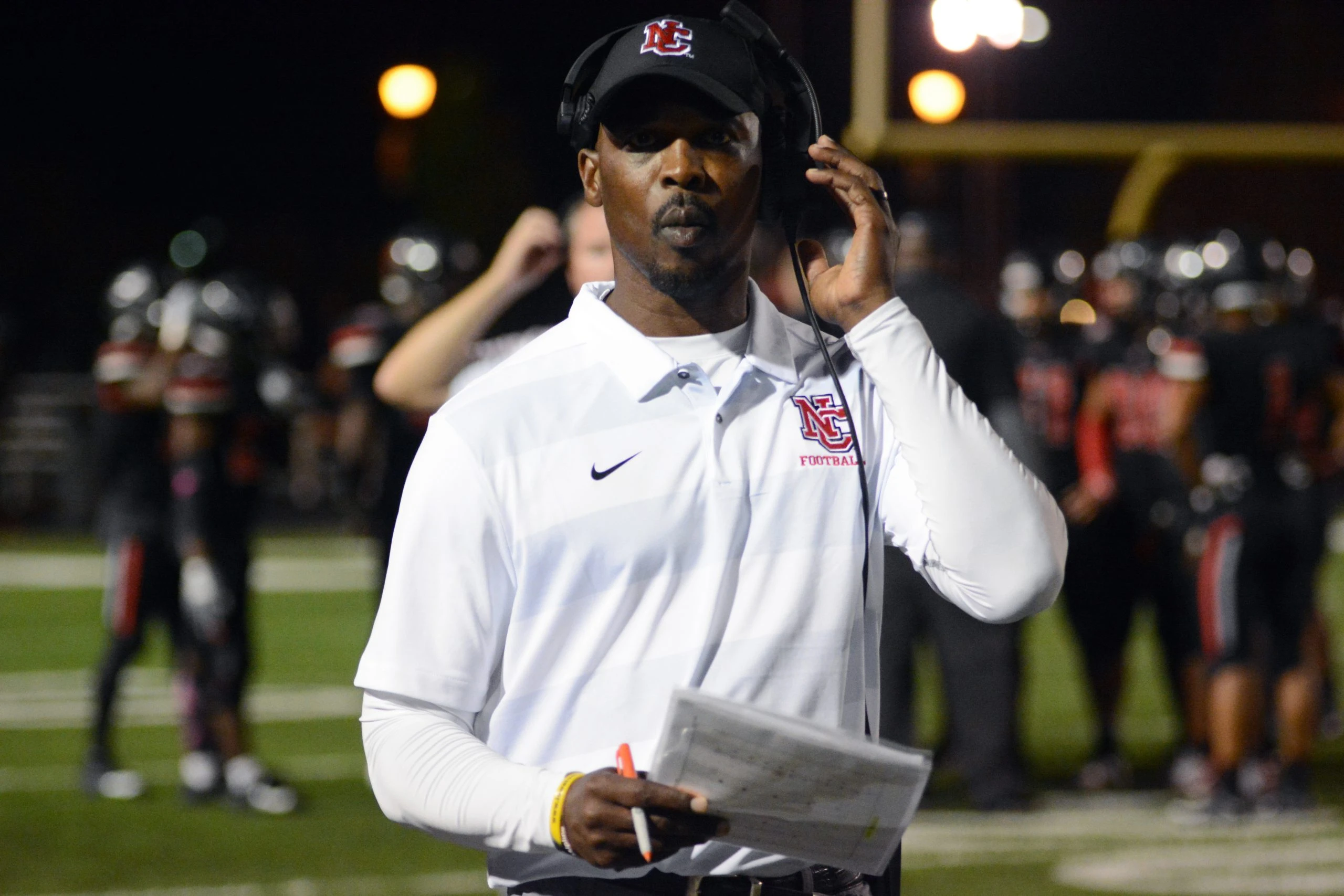Former Iowa receiver Anthony Dean goes in depth about problems facing his alma mater
By Pat Harty
IOWA CITY, Iowa – Anthony Dean is what’s good about Iowa football, class personified.
He epitomizes the American dream in how he seized an opportunity that changed the course of his life.
Dean’s opportunity came from his ability to play football.
He grew up in South Florida and developed into a major college prospect as a receiver, and that helped pave his way to college.
Dean ultimately picked Iowa, and when he left home for college in the summer of 1990, Dean’s mother reminded him, or maybe warned him is more accurate, about two things.
“I just remember my mom, the only thing that she said to me before I left was two things can happen; one, you can’t come home early, and two, you’ve got to graduate,” Dean said Wednesday on the HawkFanatic/KCJJ radio show and podcast. “She didn’t say anything about football. She didn’t say I don’t care if you don’t ever become a superstar. She said, you can’t come home early and you’ve got to graduate.
“So those are the two things that I left home with knowing that I needed to do right by myself and let my education pay and make the most of that.”
Dean didn’t become a superstar at Iowa, but he made a significant contribution as a receiver, finishing with 60 receptions, 784 receiving yards and two touchdowns.
His most productive season was in 1993, when as a fourth-year junior, Dean had 29 catches for 408 yards and one touchdown.
More importantly, though, is that Dean made his mother proud by overcoming a serious case of homesickness as a true freshman to earn his degree.
Dean now teaches special education at an elementary school in Indianapolis, and stays connected to football as a varsity assistant coach at North Central High School in Indianapolis.

Dean also has stayed connected to his college alma mater, including having a daughter who attends Iowa where she will be a sophomore this fall.
Dean cherishes the time he spent as a Hawkeye, both on and off the field. He met his wife at Iowa and started raising a family while living in Iowa City.
So it hurts Dean greatly to see the program that he loves being cast in a negative light due to accusations of racial disparities by multiple former black Iowa players.
Some of the former black players have said on social media that they were mistreated and subjected to double standards and stripped of their identity upon joining the team.
The Iowa Athletic Department also formed a Diversity Task Force in 2018 that documented numerous complaints and examples of racial disparities within the football program. The report was done partly in response to the low graduation rates and the high rate of attrition among black student-athletes at Iowa.
That full nine-page report was published by Hawkeye Nation.com on Monday, and it has since been shared all over social media.
Dean read the full report on Tuesday, and to say that he was bothered by what he read would be an understatement.
“I was beyond shocked,” Dean said. “And, of course, my first thought was there’s no way. There’s no way that this could be happening in that place, not Iowa City because of all the things that it stood for.
“But yeah, it does happen in Iowa City and it’s a very unfortunate situation.”
Dean said he never experienced as a Hawkeye playing for Hayden Fry the kind of mistreatment that has been described by the former black players who played under current head coach Kirk Ferentz.
Dean respects the former players for speaking out, and he also believes their stories, even though he never experienced anything like it as a Hawkeye.
“Guys are sticking their necks on the line and these guys are not sticking their head out there to have them chopped off for no reason,” Dean said. “They’re doing it because these things are factual. The stories are too real and the conversations are too raw, and guys were hurt and guys were leaving that program, and they weren’t just leaving for no reason. There were reasons why they were leaving, and now we know why.”
Dean credits Fry for building and sustaining the right environment at Iowa.
Dean never felt alienated or inferior because he was black.
Fry made everyone feel equally important, and the more Dean learned about his head coach while in college, the more he grew to admire Fry.
Dean researched Fry and learned that Fry had broken the color barrier in the Southwest Conference in 1965 by recruiting the first black player, Jerry LeVias, to Southern Methodist University.
“It wasn’t until probably my junior season when I really found out about the guy that I was playing for,” Dean said of Fry, who passed away this past December at the age of 90. ‘I’m fortunate enough to have had the opportunity to play for such a great coach, but a better man. What he did for black student athletes and just the way he went about business.
“When you play for Hayden he expected certain things. And it wasn’t he expected certain things based on the color of your skin. He expected certain things from all of his athletes. And that’s the way he went about business.”
Dean still remembers the day Fry visited his home in Florida and sat in the living room with his parents. Dean’s father cooked a meal that included his own special barbeque sauce, and the sauce made quite an impression on Fry.
Dean takes pride in being Fry’s first Hawkeye recruit from the state of Florida. They stayed in contact after Dean left Iowa, and Fry would always upon seeing Dean bring up the barbeque sauce that Dean’s father served Fry during his home visit.
Dean grew up in what he described as an all-black neighborhood, but he attended a high school that was mostly white.
“I had the best of both words,” Dean said. “So I didn’t feel uncomfortable being the only black kid in class at Iowa.”
Dean has helped to develop numerous college prospects during his time as an assistant coach. That includes defensive back D.J. Johnson, who played for Dean at North Central before signing with Iowa.
Johnson spent two seasons at Iowa, and made a significant contribution as a redshirt freshman last season.
However, Johnson has since transferred to Purdue, and was very vocal on social media about how he felt he was mistreated at Iowa.
Dean didn’t talk specifically about Johnson’s situation on Wednesday. But Dean was very candid when asked what he would tell one of his black players about playing football for Iowa.
“I think the University of Iowa is still a great school,” Dean said. “I think that the University of Iowa’s football program is still a great place to go and play. But I would say to that kid, Iowa City might not be for everyone. The University of Iowa’s football program might not be for everyone. I would say that I know there’s a lot of things that have been said about a lot of things that you’ve probably have or have not heard. But I would say do your homework and if you’re fortunate enough to make a visit, make sure you ask those very detailed questions and don’t leave any questions on the table.”
Dean has reached out to Kirk Ferentz and offered to help in any way. Dean also has had conversations with former Iowa offensive lineman David Porter, who is the chairman of a new advisory board that consists of former Iowa players.
“I texted coach Ferentz and said I’m willing to do whatever to help, not only because I want to help, but because I love that program and I love what the University of Iowa stands for,” Dean said. “It’s just unfortunate that what you read and see now is completely different than what my experience was. I want the program to be back to a point where I experienced the things that I did and I want everyone to have the same experiences that I did.”
Dean feels that Iowa has a chance to turn something shameful and embarrassing into a positive if it moves forward accordingly.
Former Iowa center James Daniels started the movement by posting on Twitter in early June that there were racial disparities within the Iowa football culture.
His tweet came just days after George Floyd was killed on May 25th in Minneapolis, and it also inspired other former black players to speak out.
Most of the accusations were directed at Chris Doyle, who has since reached a $1.3 million separation after having been the Iowa strength and conditioning coach since 1999.
“I said this is an opportunity for the University of Iowa’s football program, and for the athletic department as a whole, to be a trend setter because you now have that light cast on your program,’ Dean said. “How do you fix it? How do you move forward? And how do you set the trend for the other programs that may follow you?”
Dean sort of issued a challenge to the Iowa football program on Wednesday. His message seems to be that nobody can change what has happened in the past, but the future can be shaped by how you move forward.
“What the kids are dealing with now, to say that I wasn’t angry, that I wasn’t heartbroken, to say that I wasn’t saddened by the allegations and what we have now since read, I’d be lying if I said I wasn’t all of those things,” Dean said. “It is a tough situation to know that a program that I love, that I would do it all over again one-hundred times if I had the opportunity to do so, to know that a program that I love has been cast in a light this way is unfortunate.
“But at the same time, it’s being done at a time when racial tensions in our country are extremely high. So if it’s going to be done, let it be now, everyone puts their cards on the table and let’s see, not how they make it go away, how do they move forward? Those players that have come out and spoken, they’ve done what they needed to do. They cast a light, now what needs to happen is how do they take what’s been said, how do they take what’s been done and move the program forward?”



